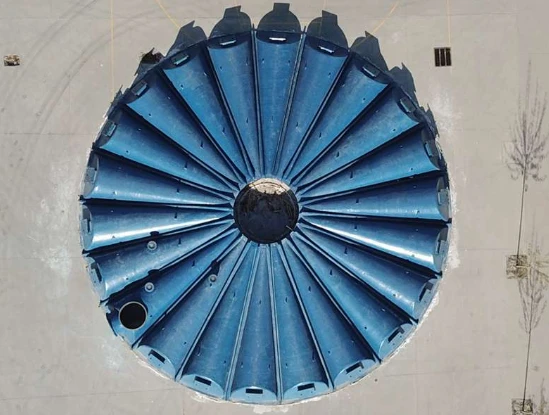
-
 Afrikaans
Afrikaans -
 Albanian
Albanian -
 Amharic
Amharic -
 Arabic
Arabic -
 Armenian
Armenian -
 Azerbaijani
Azerbaijani -
 Basque
Basque -
 Belarusian
Belarusian -
 Bengali
Bengali -
 Bosnian
Bosnian -
 Bulgarian
Bulgarian -
 Catalan
Catalan -
 Cebuano
Cebuano -
 China
China -
 China (Taiwan)
China (Taiwan) -
 Corsican
Corsican -
 Croatian
Croatian -
 Czech
Czech -
 Danish
Danish -
 Dutch
Dutch -
 English
English -
 Esperanto
Esperanto -
 Estonian
Estonian -
 Finnish
Finnish -
 French
French -
 Frisian
Frisian -
 Galician
Galician -
 Georgian
Georgian -
 German
German -
 Greek
Greek -
 Gujarati
Gujarati -
 Haitian Creole
Haitian Creole -
 hausa
hausa -
 hawaiian
hawaiian -
 Hebrew
Hebrew -
 Hindi
Hindi -
 Miao
Miao -
 Hungarian
Hungarian -
 Icelandic
Icelandic -
 igbo
igbo -
 Indonesian
Indonesian -
 irish
irish -
 Italian
Italian -
 Japanese
Japanese -
 Javanese
Javanese -
 Kannada
Kannada -
 kazakh
kazakh -
 Khmer
Khmer -
 Rwandese
Rwandese -
 Korean
Korean -
 Kurdish
Kurdish -
 Kyrgyz
Kyrgyz -
 Lao
Lao -
 Latin
Latin -
 Latvian
Latvian -
 Lithuanian
Lithuanian -
 Luxembourgish
Luxembourgish -
 Macedonian
Macedonian -
 Malgashi
Malgashi -
 Malay
Malay -
 Malayalam
Malayalam -
 Maltese
Maltese -
 Maori
Maori -
 Marathi
Marathi -
 Mongolian
Mongolian -
 Myanmar
Myanmar -
 Nepali
Nepali -
 Norwegian
Norwegian -
 Norwegian
Norwegian -
 Occitan
Occitan -
 Pashto
Pashto -
 Persian
Persian -
 Polish
Polish -
 Portuguese
Portuguese -
 Punjabi
Punjabi -
 Romanian
Romanian -
 Russian
Russian -
 Samoan
Samoan -
 Scottish Gaelic
Scottish Gaelic -
 Serbian
Serbian -
 Sesotho
Sesotho -
 Shona
Shona -
 Sindhi
Sindhi -
 Sinhala
Sinhala -
 Slovak
Slovak -
 Slovenian
Slovenian -
 Somali
Somali -
 Spanish
Spanish -
 Sundanese
Sundanese -
 Swahili
Swahili -
 Swedish
Swedish -
 Tagalog
Tagalog -
 Tajik
Tajik -
 Tamil
Tamil -
 Tatar
Tatar -
 Telugu
Telugu -
 Thai
Thai -
 Turkish
Turkish -
 Turkmen
Turkmen -
 Ukrainian
Ukrainian -
 Urdu
Urdu -
 Uighur
Uighur -
 Uzbek
Uzbek -
 Vietnamese
Vietnamese -
 Welsh
Welsh -
 Bantu
Bantu -
 Yiddish
Yiddish -
 Yoruba
Yoruba -
 Zulu
Zulu
Feb . 07, 2025 02:28
Back to list
fiberglass oil tank
Investing in a reliable and durable fuel storage solution is crucial for businesses and homeowners alike. Fiberglass oil tanks are becoming an increasingly popular choice due to their impressive longevity and resistance to various environmental factors. This article will explore the advantages of fiberglass oil tanks, drawing from real-life experiences and expert opinions, to provide a comprehensive and authoritative insight into why they are a superior choice for fuel storage.
From a financial perspective, fiberglass oil tanks offer a cost-effective solution in the long run. While the initial investment in fiberglass tanks may be higher compared to steel tanks, the reduced maintenance costs and extended lifespan make them a more economical choice over time. Financial experts recommend that potential buyers consider lifecycle costs rather than just upfront expenses when evaluating storage options, making fiberglass a wiser choice for long-term applications. Real-world applications offer further testament to the reliability of fiberglass oil tanks. For instance, in coastal areas with higher salinity levels, steel tanks often suffer from accelerated corrosion, leading to frequent replacements. Conversely, fiberglass tanks have been shown to withstand such environments effortlessly, providing a stable and enduring storage solution. Anecdotal evidence from property managers in these regions highlights the reduced operational disruptions and maintenance efforts afforded by fiberglass tanks. The growing trend towards sustainable practices in both residential and commercial settings also supports the shift to fiberglass oil tanks. By minimizing the risk of leaks and prolonging the usability of storage systems, fiberglass tanks align with sustainability goals. Environmental consultants emphasize that choosing fiberglass reduces the carbon footprint due to the reduced need for manufacturing and transportation of replacement tanks, which is a crucial consideration for businesses committed to environmental responsibility. In summary, fiberglass oil tanks represent a prudent investment for anyone seeking a reliable, safe, and environmentally conscious solution for fuel storage. Their ability to withstand corrosion, resist chemical interactions, and meet stringent safety requirements make them a superior choice over traditional steel tanks. As awareness of their benefits continues to grow, informed businesses and homeowners are upgrading to fiberglass, confident in the knowledge that they are choosing a storage solution backed by experience, expertise, authority, and trustworthiness.


From a financial perspective, fiberglass oil tanks offer a cost-effective solution in the long run. While the initial investment in fiberglass tanks may be higher compared to steel tanks, the reduced maintenance costs and extended lifespan make them a more economical choice over time. Financial experts recommend that potential buyers consider lifecycle costs rather than just upfront expenses when evaluating storage options, making fiberglass a wiser choice for long-term applications. Real-world applications offer further testament to the reliability of fiberglass oil tanks. For instance, in coastal areas with higher salinity levels, steel tanks often suffer from accelerated corrosion, leading to frequent replacements. Conversely, fiberglass tanks have been shown to withstand such environments effortlessly, providing a stable and enduring storage solution. Anecdotal evidence from property managers in these regions highlights the reduced operational disruptions and maintenance efforts afforded by fiberglass tanks. The growing trend towards sustainable practices in both residential and commercial settings also supports the shift to fiberglass oil tanks. By minimizing the risk of leaks and prolonging the usability of storage systems, fiberglass tanks align with sustainability goals. Environmental consultants emphasize that choosing fiberglass reduces the carbon footprint due to the reduced need for manufacturing and transportation of replacement tanks, which is a crucial consideration for businesses committed to environmental responsibility. In summary, fiberglass oil tanks represent a prudent investment for anyone seeking a reliable, safe, and environmentally conscious solution for fuel storage. Their ability to withstand corrosion, resist chemical interactions, and meet stringent safety requirements make them a superior choice over traditional steel tanks. As awareness of their benefits continues to grow, informed businesses and homeowners are upgrading to fiberglass, confident in the knowledge that they are choosing a storage solution backed by experience, expertise, authority, and trustworthiness.
Next:
Related Products









